- Home
- Philip Pullman
Daemon Voices Page 38
Daemon Voices Read online
Page 38
So when the monumental mason cut the words “the great School of Morals, the THEATRE” on Miss Goddard’s tombstone, there would not have been a scandal. Few people would have disagreed with the idea that the theatre could teach us about moral questions. You might not go to see a play specifically in order to become a more moral person; the latest Harlequinade or pantomime might be stronger on farcical slapstick and transformation scenes than on ethical instruction; but taking it by and large, the audiences would have felt that the experience over a season’s or a life’s theatre-going of seeing many different stories, some full of sentimental pathos, others bristling with martial bravado, some tragic, some comic—that wide mixed experience would tend to give the audience a moral education. That was the assumption. People would come to see that some kinds of behaviour—such as generosity and forgiveness—led to happy outcomes, and were praiseworthy; other kinds of behaviour—such as greed or deceitfulness—led to unhappy outcomes, and were disapproved of. Yet other kinds of behaviour—such as renunciation or noble self-sacrifice—led to sad outcomes in the short run, but were highly praised, because they led to happy outcomes for others in the long run. There would be degrees of subtlety, of course; both a violent melodrama and Macbeth would tell the audience that murder was not a good thing, but the Scottish play would do it by showing the effect Duncan’s murder has on the murderer himself. We learn from Macbeth’s fate that killing is horrible for the killer as well as the victim. And these things were all felt to be part of an education in the great school of morals.
But it wasn’t only the theatre that was felt to have this educative effect. At around the same time, Jane Austen was writing these famous words in Northanger Abbey:
“Oh! It is only a novel!…Only Cecilia, or Camilla, or Belinda”; or, in short, only some work in which the most thorough knowledge of human nature, the happiest delineation of its varieties, the liveliest effusions of wit and humour are conveyed to the world in the best chosen language.
And Jane Austen’s own novels, of course, do exactly that. Think what happens in Emma, especially in the passage where Emma is thoughtlessly rude to poor elderly Miss Bates, and especially this exchange that follows it. Mr. Knightley is older than Emma, and she admires him without knowing yet that the feeling that’s growing in her is love. She is quite profoundly taken aback when he says this:
“Were she your equal in situation—but, Emma, consider how far this is from being the case. She is poor; she has sunk from the comforts she was born to; and, if she live to old age, must probably sink more. Her situation should secure your compassion. It was badly done, indeed! You, whom she had known from an infant, whom she had seen grow up from a period when her notice was an honour, to have you now, in thoughtless spirits, and the pride of the moment, laugh at her, humble her—and before her niece, too—and before others, many of whom (certainly some) would be entirely guided by your treatment of her. This is not pleasant to you, Emma, and it is very far from pleasant to me; but I must, I will, tell you truths while I can, satisfied with proving myself your friend by very faithful counsel, and trusting that you will some time or other do me more justice than you can now.”
While they talked, they were advancing towards the carriage; it was ready; and before she could speak again, he had handed her in. He had misinterpreted the feelings which had kept her face averted, and her tongue motionless. They were combined only of anger against herself, mortification, and deep concern. She had not been able to speak; and, on entering the carriage, sunk back for a moment overcome—then reproaching herself for taking no leave, making no acknowledgement, parting in apparent sullenness, she looked out with voice and hand eager to show a difference; but it was just too late. He had turned away, and the horses were in motion. She continued to look back, but in vain; and soon, with what appeared unusual speed, they were half way down the hill, and every thing left far behind. She was vexed beyond what could have been expressed—almost beyond what she could conceal. Never had she felt so agitated, mortified, grieved, at any circumstance in her life. She was most forcibly struck. The truth of his representation there was no denying. She felt it at her heart. How could she have been so brutal, so cruel to Miss Bates! How could she have exposed herself to such ill opinion in any one she valued! And how suffer him to leave her without saying one word of gratitude, of concurrence, of common kindness!
I quote that passage in full because we need to see the whole progress of her shame and mortification and grief, grief that she has done wrong, mixed, to be sure, with grief that it has been noticed by someone whose good opinion she especially values; but genuine sorrow too, that she has hurt someone thoughtlessly. The movement of the passage from Mr. Knightley’s reproof to Emma’s self-reproach, her regret for appearing to be sullen, and not speaking to him, when in fact she was deeply ashamed, is the school of morals fully at work. Emma is being educated all right, and so are we.
You won’t be surprised to hear, then, that I endorse this “school of morals” view wholeheartedly. I think we can learn what’s good and what’s bad, what’s generous and unselfish, what’s cruel and mean, from fiction. In one way, this is so obvious that it’s hardly worth saying; except that I think that from time to time it needs re-stating, or stating in terms that take account of the currents that have flowed through cultural life, through public discourse, since it was last stated. And I think that there are two such currents that have been flowing strongly in recent years, and I’ll look at each of them in turn.
One is “theory,” and the whole project of theory, including post-structuralism, post-colonialism, postmodernism, and so on. As it affects this argument, it takes the form of saying that the connection between literary texts and the rest of life is characterised by contradictions and fractures and disjunctions and subversions and an endlessly regressive series of dialectical readings. A text is not, as we had innocently thought, a transparent window through which ideas or things or events or characters are visible with perfect clarity. As a matter of fact it’s problematical to talk as if there were a difference between texts and the rest of life in any case, because “il n’y a pas dehors-texte,” there is nothing outside the text. When I asked a leading practitioner of post-structuralism what that actually meant, she said, “Ah, but Derrida didn’t mean it in that sense,” which confirmed what I thought when I asked the question, namely that this was a mystery too profound for my feeble understanding to plumb.
This intellectual endeavour, or if you prefer mystery-cult, is a source of great fascination and enormous fun and considerable professional advantage to those who know how to play it. But to the non-academic reader it does seem to undercut a certain moral idea, namely responsibility. You seem to be able to say things without consequences, because whatever you say will automatically deny and subvert its own claims to truth. When “theory” was at its height, the idea that novels or plays reflected more or less faithfully what human life was like and taught us how to behave by showing what happened when you did this or that seemed ridiculously old-fashioned and out of touch. In fact, some things that traditional readers and writers took for granted, like the thing Jane Austen called human nature, were scoffed at, and their very existence denied.
I’ll come back to theory later in this lecture, because first of all I want to look at the other cultural force bearing on the school of morals, which is quite different. I suppose you could call it theocratic absolutism. I’ve written about it before, but I think what I said bears re-stating. Theocratic absolutism has been around for longer than theory, and its effects have been far more deadly. But first I’ll have to clarify what I mean by theocratic, because I don’t think you need to believe in God to have a theocracy; some theocracies are atheist. I mean a system that has these characteristics:
There is a holy book, a scripture whose word is inerrant and may not be doubted, which has such absolute authority that it trumps every other. Everything, even
the discoveries of science, has to be judged against what the scripture says, and if there is a contradiction, the scripture wins. This scripture might be the Bible, it might be the Koran, it might be the works of Karl Marx.
There are doctors of the church, who interpret the holy book and pronounce on its meaning: it might be St. Augustine, it might be the Ayatollahs, it might be Lenin.
There is a priesthood with special powers and privileges, which can confer blessings on the laity, or withdraw them. Entry into the priesthood is an honour; it’s not for everyone; and the authority of the priesthood tends to concentrate in the hands of elderly men: as it might be, the Vatican, or the politburo in the Kremlin.
There is close control of the news media, and ferocious censorship of books. It was the Catholic Church of the Counter-Reformation that invented the word propaganda, and the Soviet Union that took it up with enthusiasm and incorporated it into their term agitprop.
And there are many more characteristics of this sort of system, which we can find parallels for in both religious and atheist forms of totalitarianism:
There is the concept of heresy and its punishment.
There is the concept of apostasy.
There is an Inquisition with the powers of a secret police force, or a secret police force with the powers of an Inquisition.
There is a complex procedural apparatus of betrayal, denunciation, confession, trial and execution.
There is a teleological view of history, according to which human society is moving inexorably towards a millennial fulfilment in a golden age.
There is a fear and hatred of external unbelievers.
There is a fear and hatred of internal demons and witches.
There is the notion of pilgrimage to sacred places and holy relics—the Turin Shroud, Red Square, the birthplace of Chairman Mao.
And so on, ad nauseam. In fact, as far as the way they behaved in practice is concerned, there are remarkable similarities between the Spain of Philip II, the Iran of Ayatollah Khomeini, and the Soviet Union under Stalin. We might see some parallels with the United States in the time of McCarthy. We might even see some resemblances to the present time. So when I say “theocracy” in the context of what I’m saying tonight, I’m not limiting the term to those states that base their authority on the existence of a supernatural creator. What I’m talking about is the tendency of human beings to gather power to themselves in the name of something that may not be questioned, and to justify what they do in terms of absolutes: absolute truth; absolute goodness; absolute evil; absolute hatred; if you’re not with us, you’re against us.
Now, remembering where we began, with the idea that stories can offer a moral education, I want to look briefly at how theocracies regard literature—how they read stories and poems and plays.
The first thing is that people with this cast of mind have low expectations of literature. They think that literature has only one purpose, which is ideological, and so its worth can be judged by how well it fulfils that ideological purpose. There’s a very good description of this cast of mind at work in Reading Lolita in Tehran, by the professor of literature Azar Nafisi. She recounts how difficult it became to teach the sort of books she most wanted to teach—namely the subtle, the complex, the ambiguous—in the atmosphere in Iran after the Khomeini revolution. She says:
Unable to decipher or understand complications or irregularities…the officials were forced to impose their simple formulas on fiction as they did on life. Just as they censored the colours and tones of reality to suit their black-and-white world, they censored any form of interiority in fiction; ironically, for them as for their ideological opponents, works of imagination that did not carry a political message were deemed dangerous. Thus, in a writer such as [Jane] Austen, for example, whether they knew it or not, they found a natural adversary.
So the Muslim activists had that view of fiction, but so did their opponents, the activists on the left. Unlike the people in charge, the leftists felt—and I quote Azar Nafisi’s words again—they felt that:
…we needed to read fiction like The Great Gatsby because we needed to know about the immorality of American culture. They felt we should read more revolutionary material, but we should read books like this as well, to understand the enemy.
The theocratic cast of mind is always reductive whether it’s in power or not. Another example—a famous one—from an atheist theocracy is the criticism of the poetry of Anna Akhmatova by the Central Committee of the All-Union Communist Party in 1946:
Akhmatova is a typical exponent of empty, frivolous poetry that is alien to our people. Permeated by the scent of pessimism and decay, redolent of old-fashioned salon poetry, frozen in the positions of bourgeois-aristocratic aestheticism and decadence—“art for art’s sake”—not wanting to progress forward with our people, her verses cause damage to the upbringing of our youth and cannot be tolerated in Soviet literature.
So reading one sort of stuff will damage; reading another sort of stuff will improve. And we shall decide which is which.
Well, needless to say, I think there’s a vast difference between that view and the view I’m proposing tonight. And a large part of the difference lies not only in what theocratic or totalitarian societies choose to read, but in the way they read. A word that’s emblematic of this attitude is the word correct. We’ve become used to it in the cliché politically correct, which is a right-wing caricature of a left-wing tendency to emphasise one approved kind of language we should use, one single attitude we should adopt to social questions, one approved way we should behave in every situation, and so on. Correct is a word you find again and again in works of communist apologetics, such as a book I’ve just been looking at about the Cultural Revolution in China. “The fundamental question has been and always will be whether the correct line is being followed or not…Education must promote revolutionary aims in the spirit of Mao Tse-tung Thought…Then, with victory for the correct line, things right themselves again,” and so on.
This is really a form of fundamentalism. Karen Armstrong, in her book The Battle for God (Knopf, 2000), explains the nature of fundamentalism very well. She sets out the difference between “mythos” and “logos,” different ways of apprehending the reality of the world. Mythos deals with meaning, with the timeless and constant, with the intuitive, with what can only be fully expressed in art or music or ritual. Logos, by contrast, is the rational, the scientific, the practical; that which is susceptible to logical explanation.
Her argument is that in modern times, because of the astonishing progress of science and technology, people in the Western world “began to think that logos was the only means to truth, and began to discount mythos as false and superstitious.” This resulted in the phenomenon of fundamentalism, which, despite its own claims to be a return to the old true ways of understanding the holy book, is not a return of any kind, but something entirely new: “Protestant fundamentalists read the Bible in a literal, rational way that is quite different from the more mystical, allegorical approach of pre-modern spirituality.”
This way of reading, in which everything is taken literally, doesn’t allow for ambiguity, or mystery, or subtlety, or what Azar Nafisi called interiority of any kind. Everything is black or white, true or false, good or bad, right or wrong. There is no scope for interpretation, except the kind which is taught in the official schools, and approved by the authorities. There is one way of reading and understanding a text, and only one: the correct way.
Now then: I said a few minutes ago that this way, the “correct,” the “fundamentalist” style of reading that characterises theocratic absolutism, was one of the currents that had been swirling around the old-fashioned idea of the “school of morals” in recent times. Has it had any effect? Does it place the school of morals in any danger? Is it a threat, or something we can ignore?
Well, this nation isn’t yet a theocracy. There is still a certain amount of democratic back-and-forthness at work. But I’m worried by a couple of straws in the wind. I’m worried, firstly, by this government’s willingness to endorse and support schools that teach so-called creationism. I’m thinking of the city academies that they put up for sale. If you’re a rich person and you can afford £2 million, you can start a school and the government will fund the rest of it with ten times that amount of money, and give you control of the curriculum. Then if you want to teach the children that Darwin was wrong and that God created the world in six days, you are allowed to. This is an extraordinary development, and the government ought to be called to account for it. Science isn’t a body of knowledge: science is a method of inquiry. And this closes down inquiry by stating in advance what is to be discovered. Our government is colluding in this, and it’s wrong.
The second straw in the wind is the increasing tendency among people to describe their primary identity not in terms of ethnic or geographical origin, but in terms of the religion they profess. They don’t say, “I’m Asian,” or, “I’m British Bangladeshi,” they say, “I’m a Muslim.” Now of course people are surely allowed to describe themselves in any way they like, and for those of us who are British it’s a fluid kind of thing anyway, because we constantly find ourselves shifting between British and English, or British and Scottish, or British and Afro-Caribbean, depending on which part of our identity is salient at any moment. During the Ryder Cup golf tournament, many of us discover that we’re European.

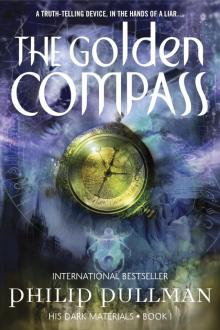 The Golden Compass
The Golden Compass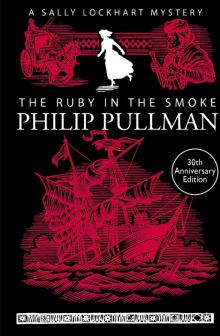 The Ruby in the Smoke
The Ruby in the Smoke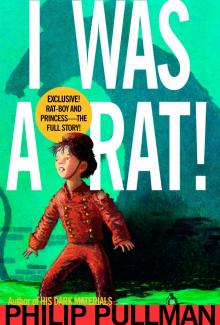 I Was a Rat!
I Was a Rat!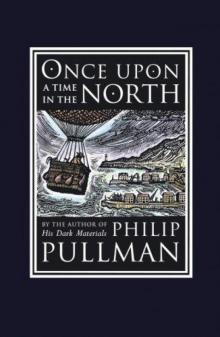 Once Upon a Time in the North
Once Upon a Time in the North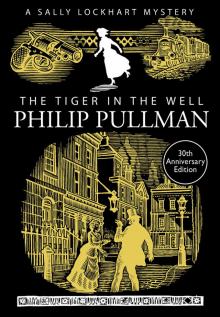 The Tiger in the Well
The Tiger in the Well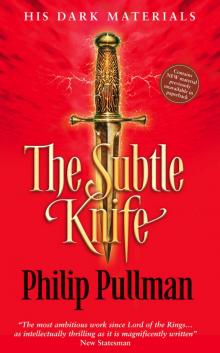 The Subtle Knife
The Subtle Knife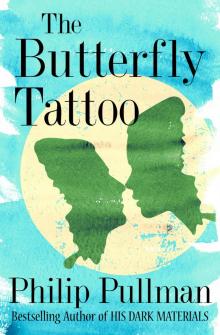 The Butterfly Tattoo
The Butterfly Tattoo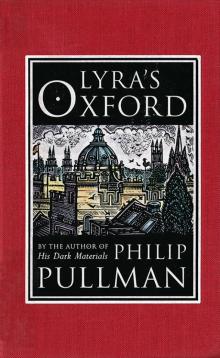 Lyra's Oxford
Lyra's Oxford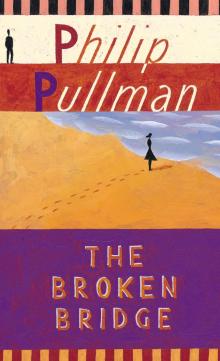 The Broken Bridge
The Broken Bridge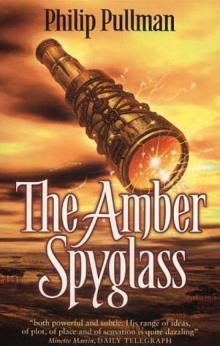 The Amber Spyglass
The Amber Spyglass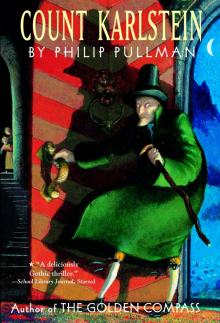 Count Karlstein
Count Karlstein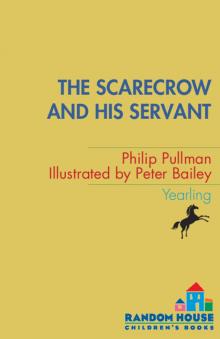 The Scarecrow and His Servant
The Scarecrow and His Servant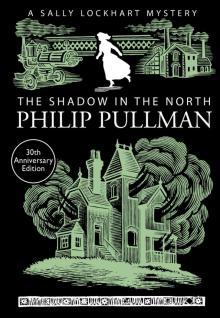 The Shadow in the North
The Shadow in the North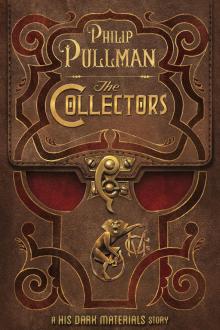 The Collectors
The Collectors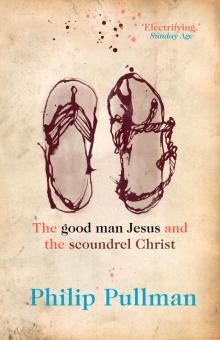 The Good Man Jesus and the Scoundrel Christ
The Good Man Jesus and the Scoundrel Christ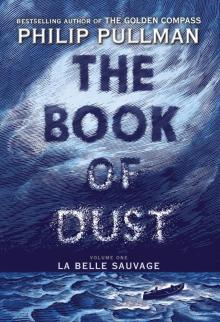 La Belle Sauvage
La Belle Sauvage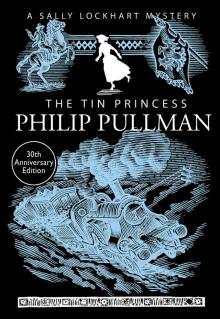 The Tin Princess
The Tin Princess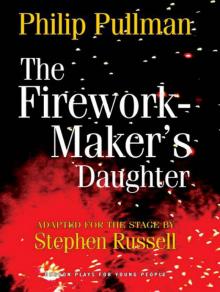 The Firework-Maker's Daughter
The Firework-Maker's Daughter The Book of Dust: The Secret Commonwealth (Book of Dust, Volume 2)
The Book of Dust: The Secret Commonwealth (Book of Dust, Volume 2)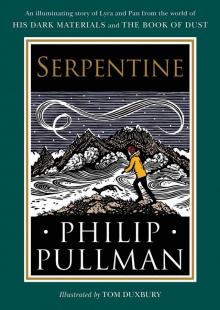 Serpentine
Serpentine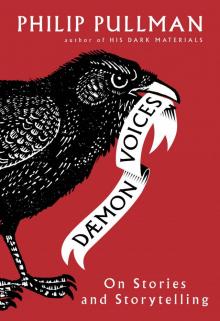 Daemon Voices
Daemon Voices The Amber Spyglass: His Dark Materials
The Amber Spyglass: His Dark Materials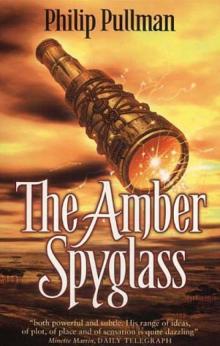 The Amber Spyglass hdm-3
The Amber Spyglass hdm-3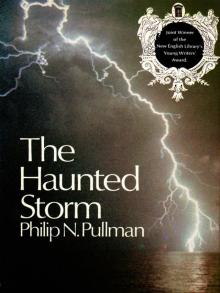 The Haunted Storm
The Haunted Storm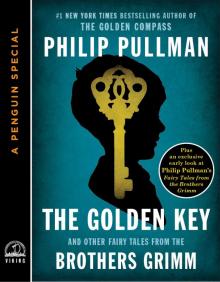 The Golden Key
The Golden Key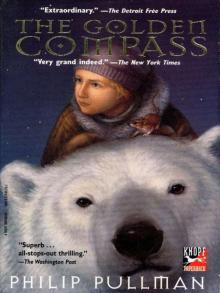 His Dark Materials 01 - The Golden Compass
His Dark Materials 01 - The Golden Compass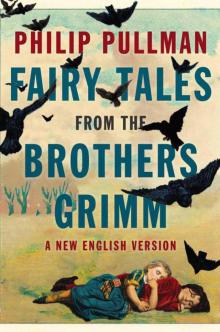 Fairy Tales from the Brothers Grimm: A New English Version
Fairy Tales from the Brothers Grimm: A New English Version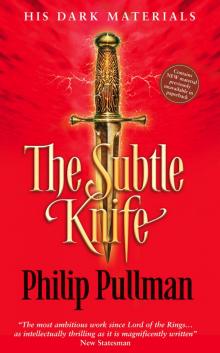 His Dark Materials 02 - The Subtle Knife
His Dark Materials 02 - The Subtle Knife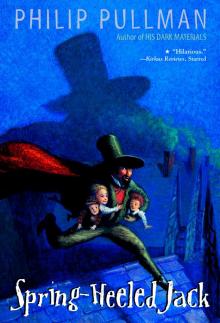 Spring-Heeled Jack
Spring-Heeled Jack The Golden Compass hdm-1
The Golden Compass hdm-1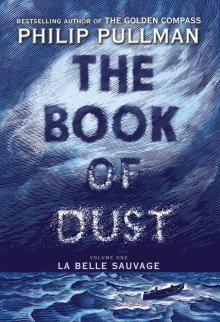 The Book of Dust, Volume 1
The Book of Dust, Volume 1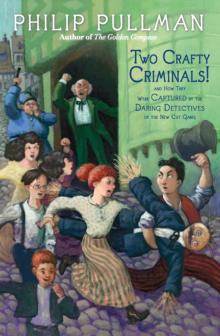 Two Crafty Criminals!
Two Crafty Criminals!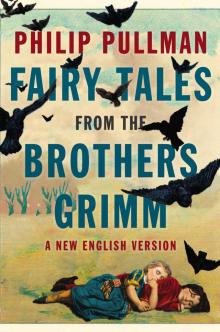 Fairy Tales from the Brothers Grimm
Fairy Tales from the Brothers Grimm The Subtle Knife: His Dark Materials
The Subtle Knife: His Dark Materials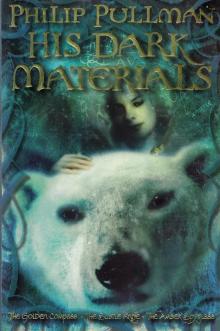 His Dark Materials Omnibus
His Dark Materials Omnibus The Golden Compass: His Dark Materials
The Golden Compass: His Dark Materials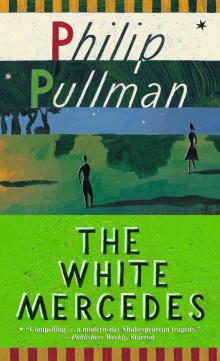 The White Mercedes
The White Mercedes